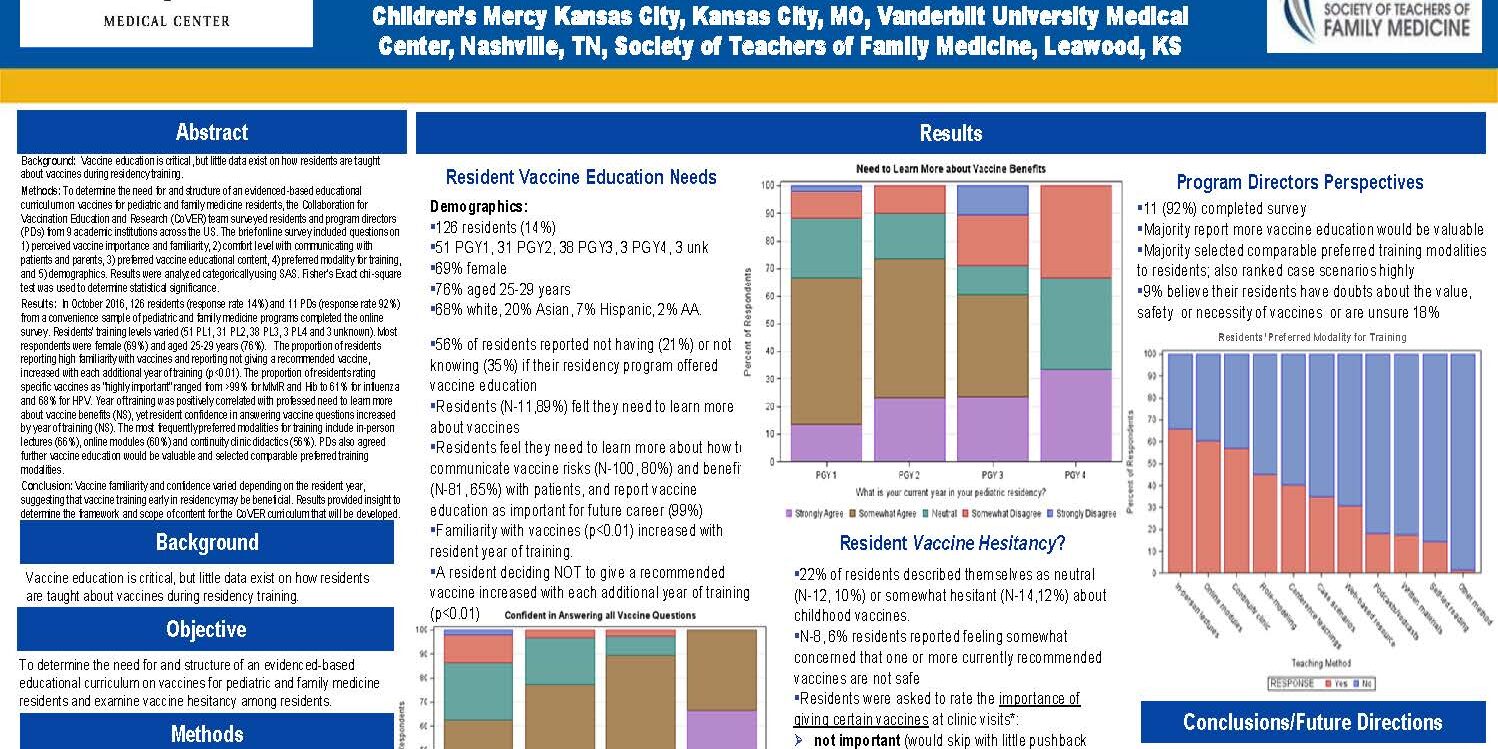
The 2-day Clinical Vaccinology Course (CVC) sponsored by the National Foundation for Infectious Diseases (NFID) and Emory University School of Medicine focuses on new developments and issues related to the use of vaccines across the lifespan. Poster presentations and interactive sessions led by expert faculty provide the latest information on updated vaccine recommendations and innovative and practical strategies for ensuring timely and appropriate immunization. The 2018 course is scheduled for November 9-10, 2018 in Bethesda, MD.
NFID invites authors to submit abstract submissions for poster presentation to share best practices and program results, stimulate discussion, and exchange ideas with colleagues in an interactive and informal setting. Abstracts must be submitted online by September 10, 2018 at 11:59 PM ET at http://bit.ly/CVC18Posters.
2017 poster presentations highlighted strategies and tactics to improve vaccination rates and processes, including the following:
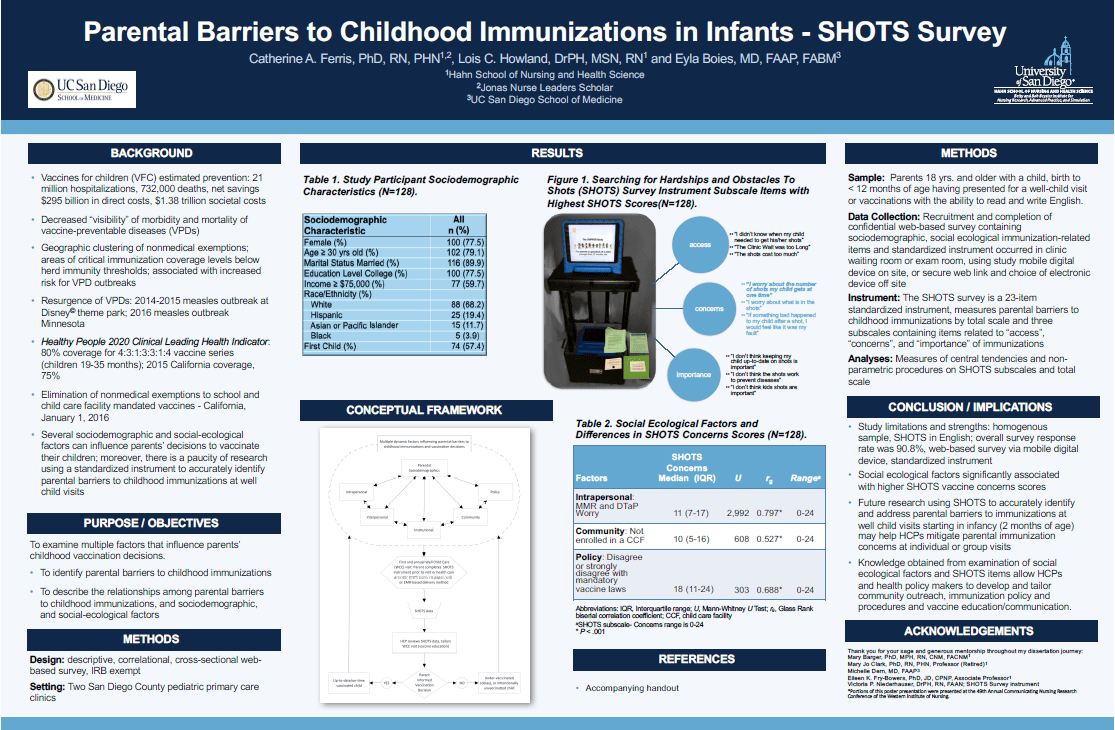
Submission Category: Best Practices to Increase Pediatric Immunization Rates
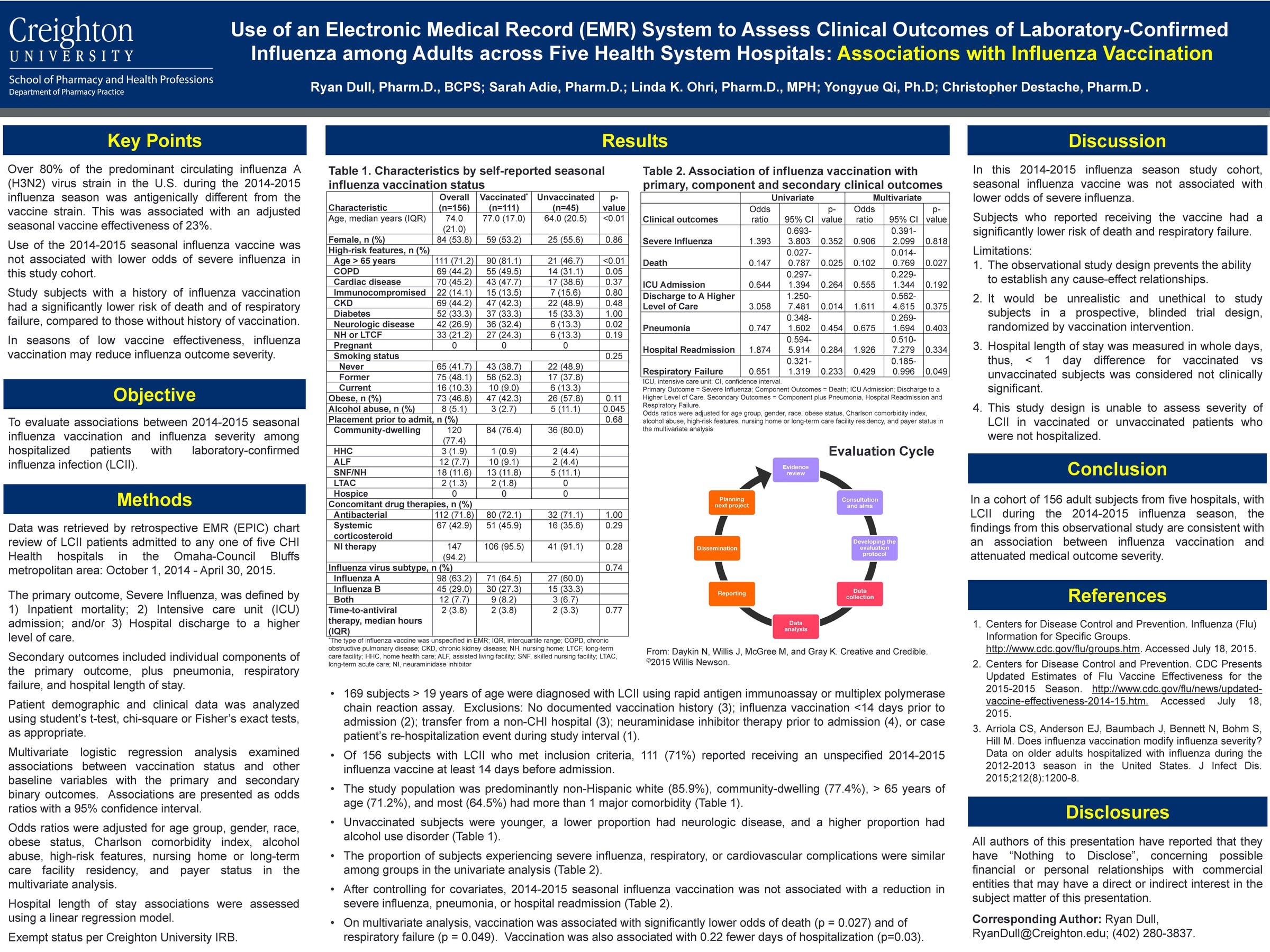
Submission Category: Implementation and Use of Electronic Medical Records (EMR)/Immunization Information Systems (IIS)
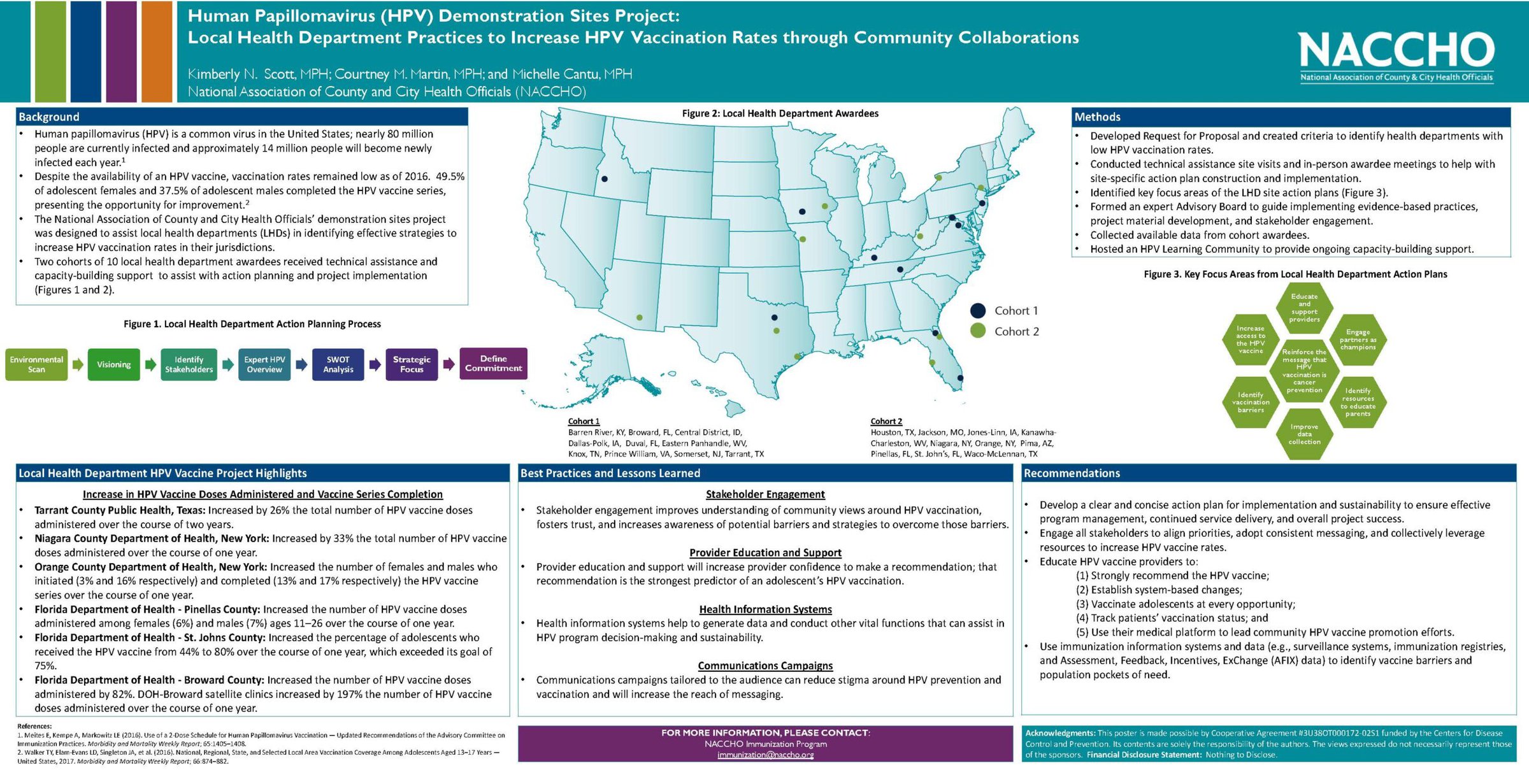
Submission Category: Best Practices to Increase Adolescent Immunization Rates
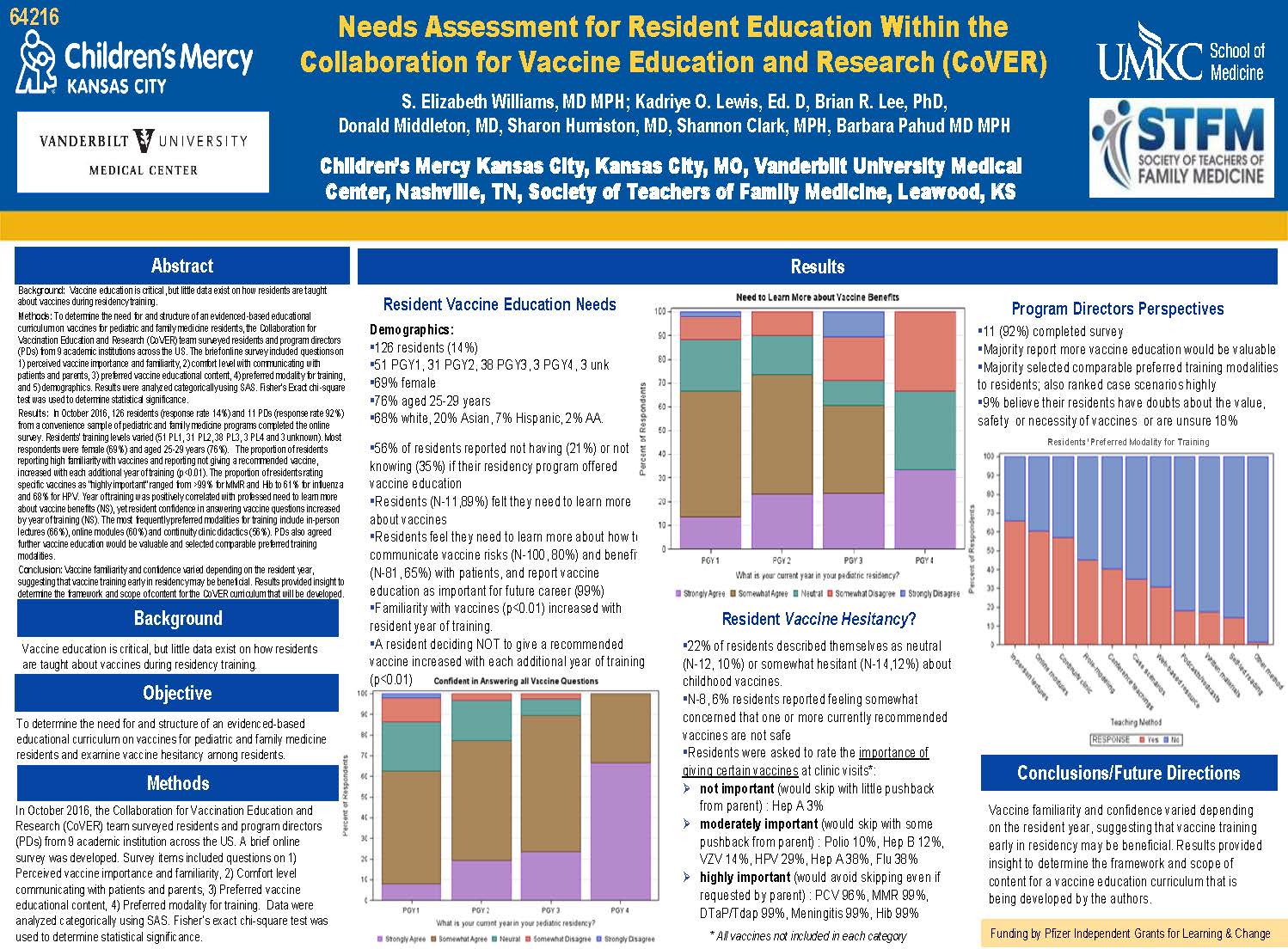
Submission Category: Addressing Immunization Disparities
Abstract categories for 2018 poster presentations include:
- Addressing Immunization Disparities
- Addressing Vaccine Safety Concerns and Vaccine Hesitancy
- Best Practices to Increase Immunization Rates
- Effective Communication Strategies
- Implementation and Use of Electronic Health Records (EHR)/Immunization Information Systems (IIS)
Visit www.nfid.org/cvc to learn more, to submit an abstract, and to register for the course. Discounted early registration fees end on September 27, 2018.
To join the conversation and get the latest news on infectious diseases, follow NFID on Twitter using the hashtag #NFIDCVC, like us on Facebook, follow us on Instagram, join the NFID Linkedin Group, and subscribe to NFID Updates.
Related Posts
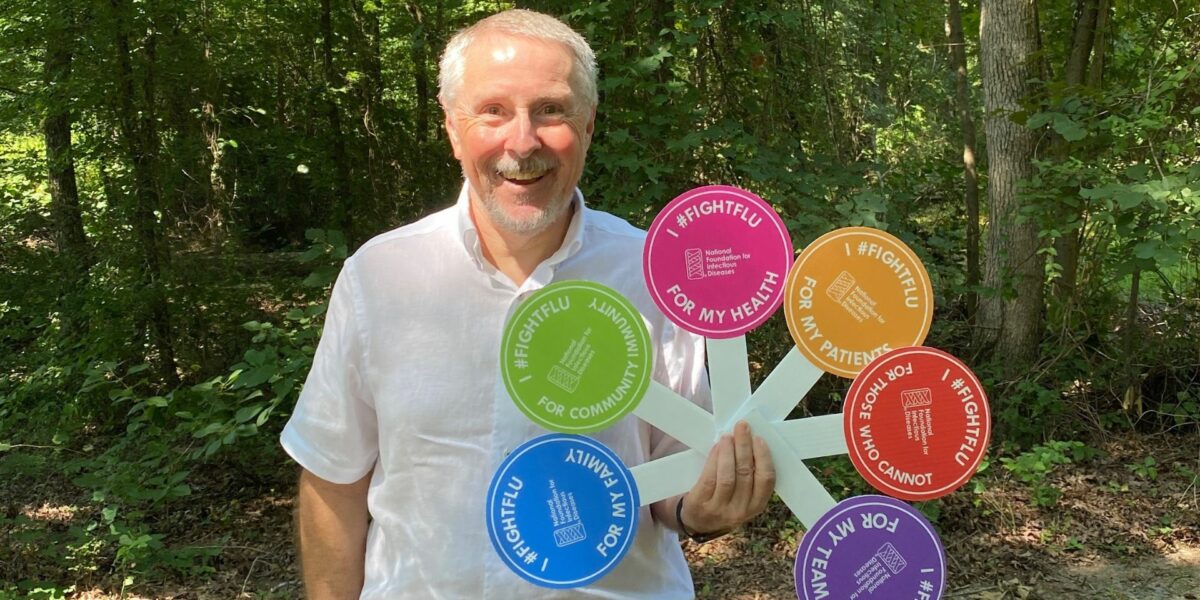
Overcoming Barriers to Vaccination
NFID Medical Director Robert H. Hopkins, Jr., MD, shares his thoughts on communication tactics and other strategies to help overcome barriers to vaccination
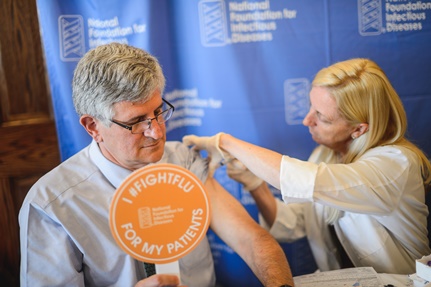
Are Vaccines Safe?
Probably the most dangerous aspect of getting a vaccine is driving to the doctor’s office to get it. Every year, about 30,000 people die in car accidents and even walking outside on a rainy day isn’t entirely safe—every year in the US, about 100 people are killed when struck by lightning. While routine daily activities pose a certain degree of risk, we choose to do them because we consider that the benefits outweigh the risks.

Travel Vaccines: Know Before You Go
Planning to travel overseas this summer? Before any international travel, it is important to talk with a healthcare professional about recommended vaccines, depending on the country or countries you will be visiting. Vaccines can help protect you against a number of serious diseases, including typhoid and yellow fever, which are found in some developing countries.
